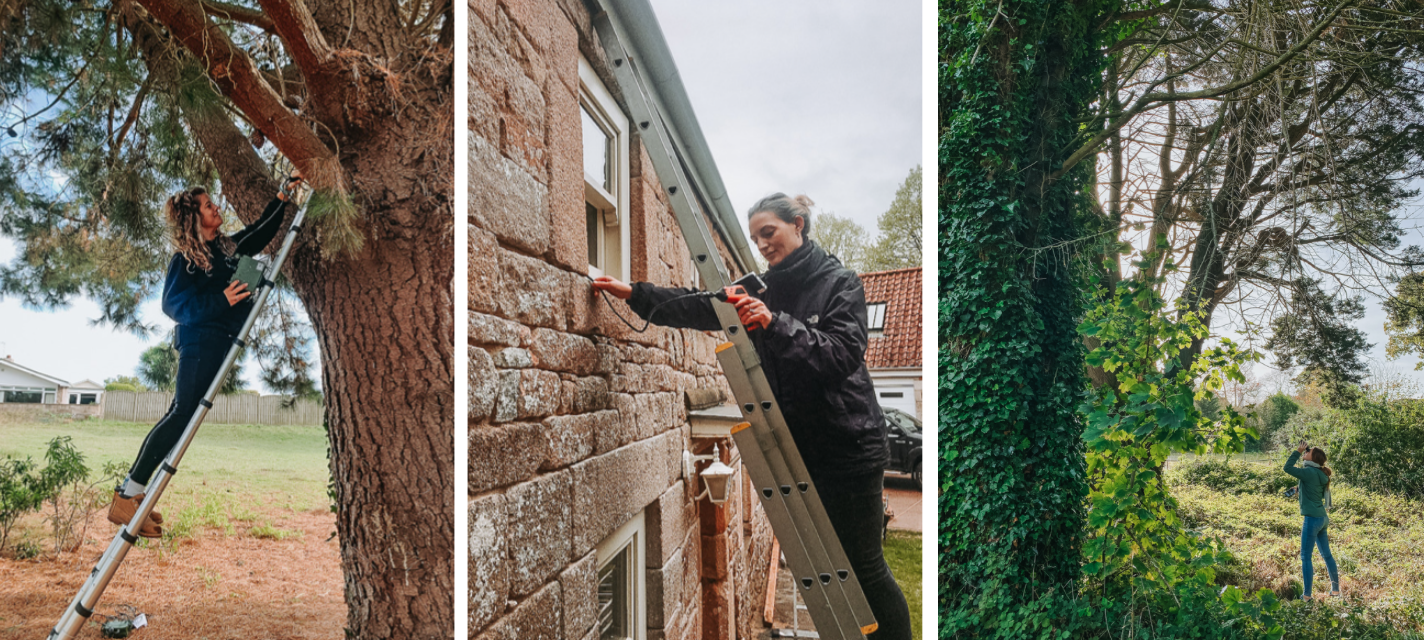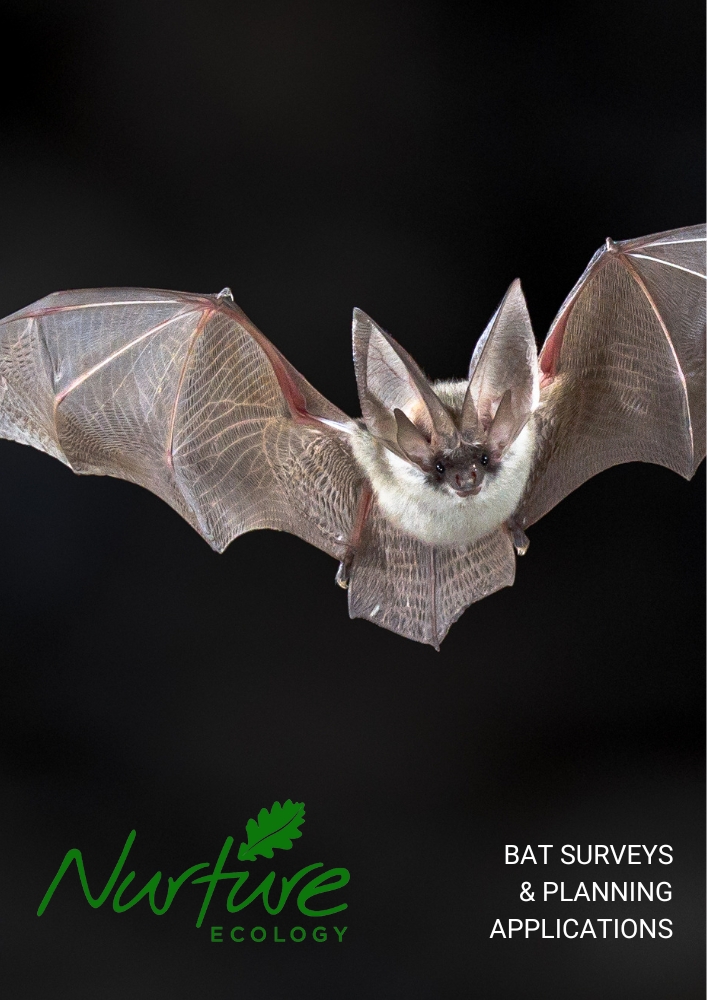Preliminary Roost Inspections (PRIs) are undertaken as part of the Preliminary Ecological Appraisal (PEA) when buildings or trees on site may be impacted by the proposed development works. This day-time scoping survey assesses the suitability of buildings or trees to support bats, which are protected species in both Europe and locally. This survey can take place at any time of the year.

If no suitability for the inspected building(s) or tree(s) to support bats is found, then a simple report is written to confirm that use by bats is unlikely.
If suitability to support bats is found, further protected species surveys may be required ahead of your planning application being determined. These are bound to seasonal time constraints so arrange a no obligation site meeting with us early, to avoid unecessary delays to your project.
You can also download our 'Bat Surveys & Planning Applications' PDF for full information below.
Bat populations have declined drastically throughout the world and they are now a protected species in many countries. Bats and their roosts are protected under the Wildlife (Jersey) Law 2021, requiring any development which may impact protected species to have the input of an ecological consultant. We work with you to ensure your project can continue whilst a positive outcome for wildlife is also achieved.
Government of Jersey Land Resource Management require surveys to follow the Bat Conservation Trust Best Practice Guidelines (Collins 2016). These guidelines can be found here, but we have summarised the process in the PDF below.

